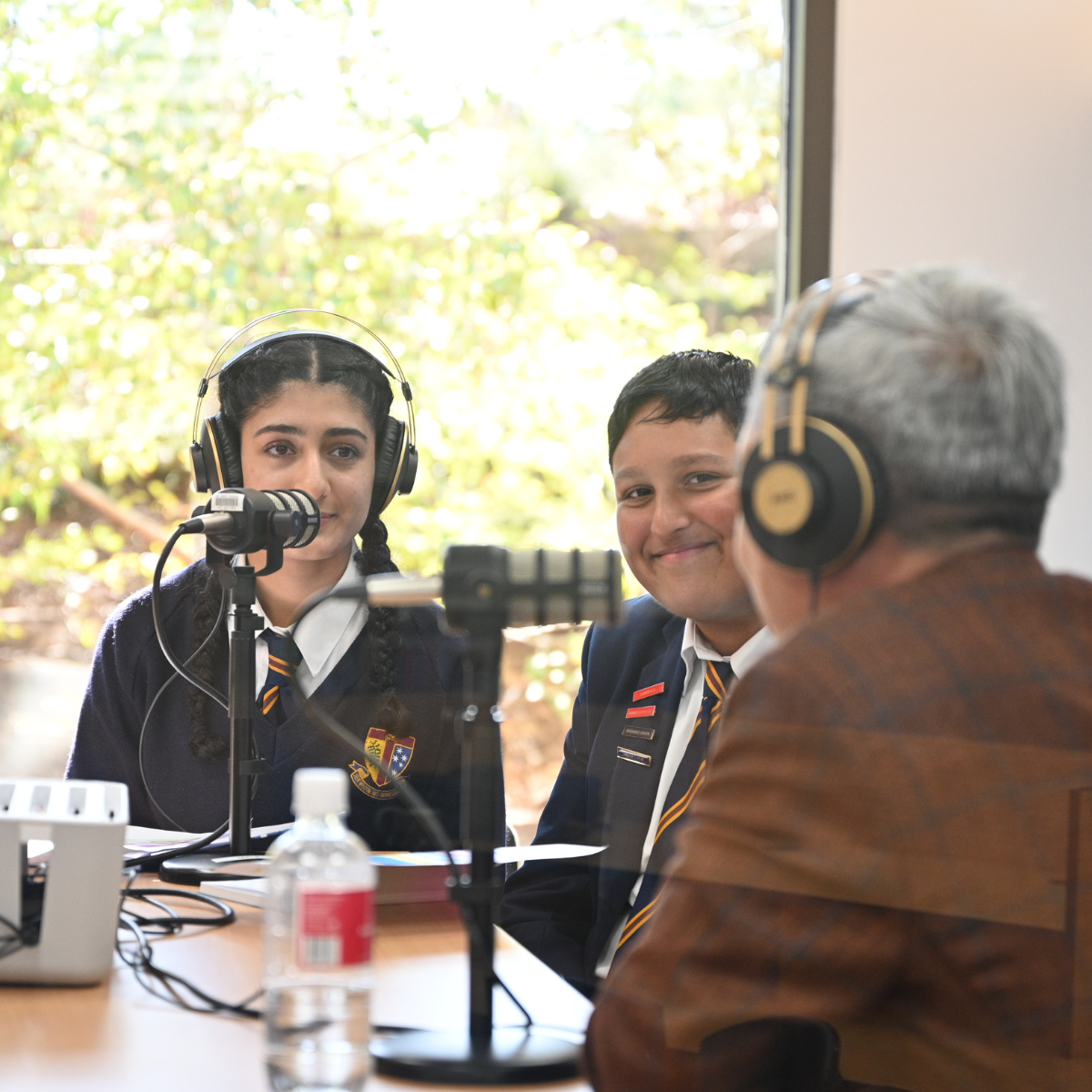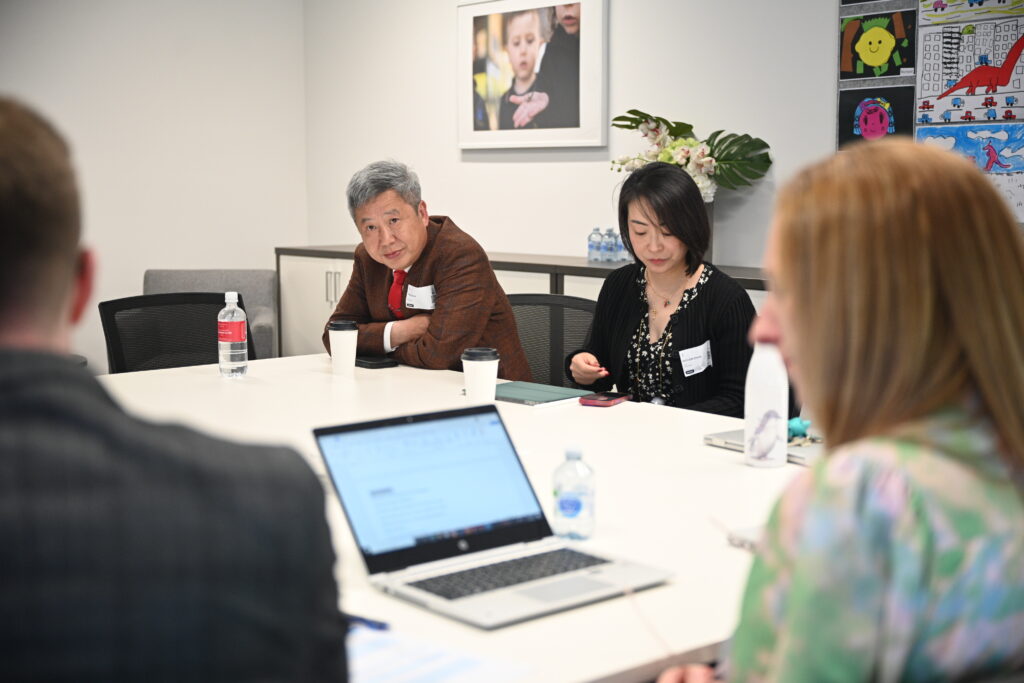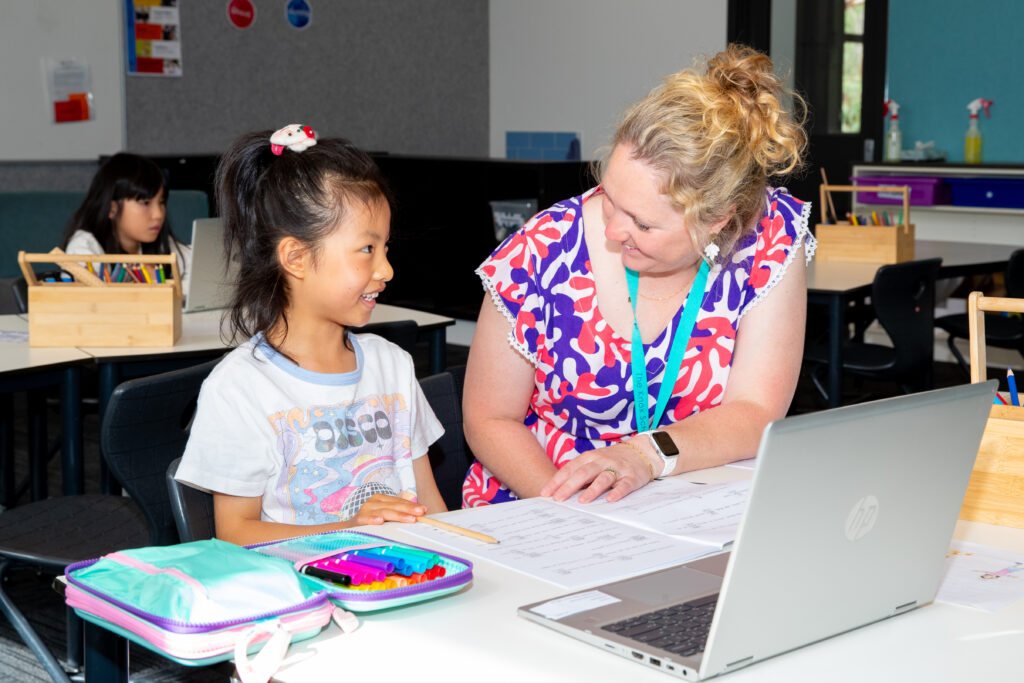
For the past five years, The Knox School (TKS) has been a proud and active contributor to the Melbourne Metrics network – a growing, globally recognised movement that is redefining what it means for students to thrive in school.
At its core, this network seeks to establish a new grammar of schooling – one that aligns powerfully with our own educational vision at TKS.
The traditional markers of academic achievement, such as grades and ATAR scores, tell only one small part of a student’s story. The Melbourne Metrics network is boldly working to build a more expansive and authentic system of learning and assessment – one that recognises the full breadth of a young person’s abilities, passions and character.

At TKS, this vision resonates deeply and, as our Associate Principal and Head of Learning, Teaching and Innovation, Liana Gooch, shares – this reflects our commitment to preparing students for the real world:
We are committed to capturing a holistic view of our students – what they know, what they can do, and who they are becoming. In other words, Knowledge, Skills and Character. This aligns with the Melbourne Metrics network’s focus on credentials that represent the strengths of a learner, rather than reducing them to a single rank or score. We measure what’s really important – the competencies that will set them up as lifelong learners and global citizens.
The New Grammar of Schooling: What It Looks Like
The Melbourne Metrics model reimagines every part of the learning process. Key features of the new grammar of schooling include but is not limited to the following features:
- Ambitious goals for learners – focusing on competence, autonomy, purpose, and connection.
- A broad and flexible curriculum that supports depth, passion and individual interest.
- Learner agency in both learning and assessment.
- Learning design that matches learner needs and aspirations.
- Teachers who are facilitators and coaches, not just content deliverers.
- Measures of success that reflect the holistic aims of education.
- Community trust in the judgement of educators who know their students well.
- Developmental, embedded assessment based on clear competency standards.
- A credentialing system that builds a strengths-based learner profile.
- Collegiate moderation to ensure trust and reliability, rather than mere compliance.
- Matching, not ranking, for selection into pathways and opportunities.
Building Competency at TKS
At The Knox School, we are already deeply invested in this transformation. Our approach includes the development and assessment of seven key competencies that are central to our framework of Knowledge, Skills and Character. These competencies align closely with the Victorian Curriculum capabilities and are being embedded across all levels of learning from Kindergarten to Year 12:
- Acting Ethically: acting in a way that is guided by moral principles (what we ought to do) in any situation.
- Active Citizenship: contributing to the wellbeing of a community.
- Agency in Learning: the ability to transmit, receive and interpret information, ideas, arguments, feelings and beliefs to support the purposes of the individual or group.
- Communication: working with others to achieve a common goal.
- Collaboration: working with others to achieve a common goal.
- Quality Thinking: thinking things through to achieve better outcomes for your or your group.
- Personal Development: the ability to live by the attitudes and behaviours that your communities value.
Each competency has a clearly defined progression from early years through to graduation, structured across three stages: Stage 1 (Early Learning to Year 4), Stage 2 (Years 5 to 8) and Stage 3 (Years 9 to 12).
Of particular focus this year is ‘Agency in Learning’ – a competency that empowers students to be co-designers in their educational journey. Through this, students gain authentic voice and the ability to enact meaningful change in their own learning.

Professional Development and Implementation
In 2024, several of our Knoxpedition teams had been actively upskilling in the use and assessment of these Melbourne Metrics competencies. In 2025, this work will expand even further, with our Collaborative Professional Learning Program (CPLP) dedicated to equipping all TKS staff to:
- Understand and embed competencies into unit design.
- Observe and assess capabilities in real classroom settings.
- Apply a range of transformative assessment tools, including the Australian Learner Competency Credential (ALCC), which are warranted by the University of Melbourne.
We are excited to share that initial assessments for the ALCC will begin in our Junior School this year, and will extend to the Senior School in 2026. Following the completion of a two-year assessment cycle, students will receive a formal credential – a strengths-based profile of what they can do, not simply what they have scored.

What This Means for Students
This approach to assessment is highly meaningful for our learners. Instead of being defined by a percentage or grade, students receive clear and detailed insights into their progress within each competency. They gain:
- Confidence in their unique abilities.
- A clear language to articulate their strengths.
- Insight into the next steps for growth and development.
Ultimately, this empowers students to take ownership of their learning, set meaningful goals, and build the personal and academic qualities they need to thrive – now and into the future.
